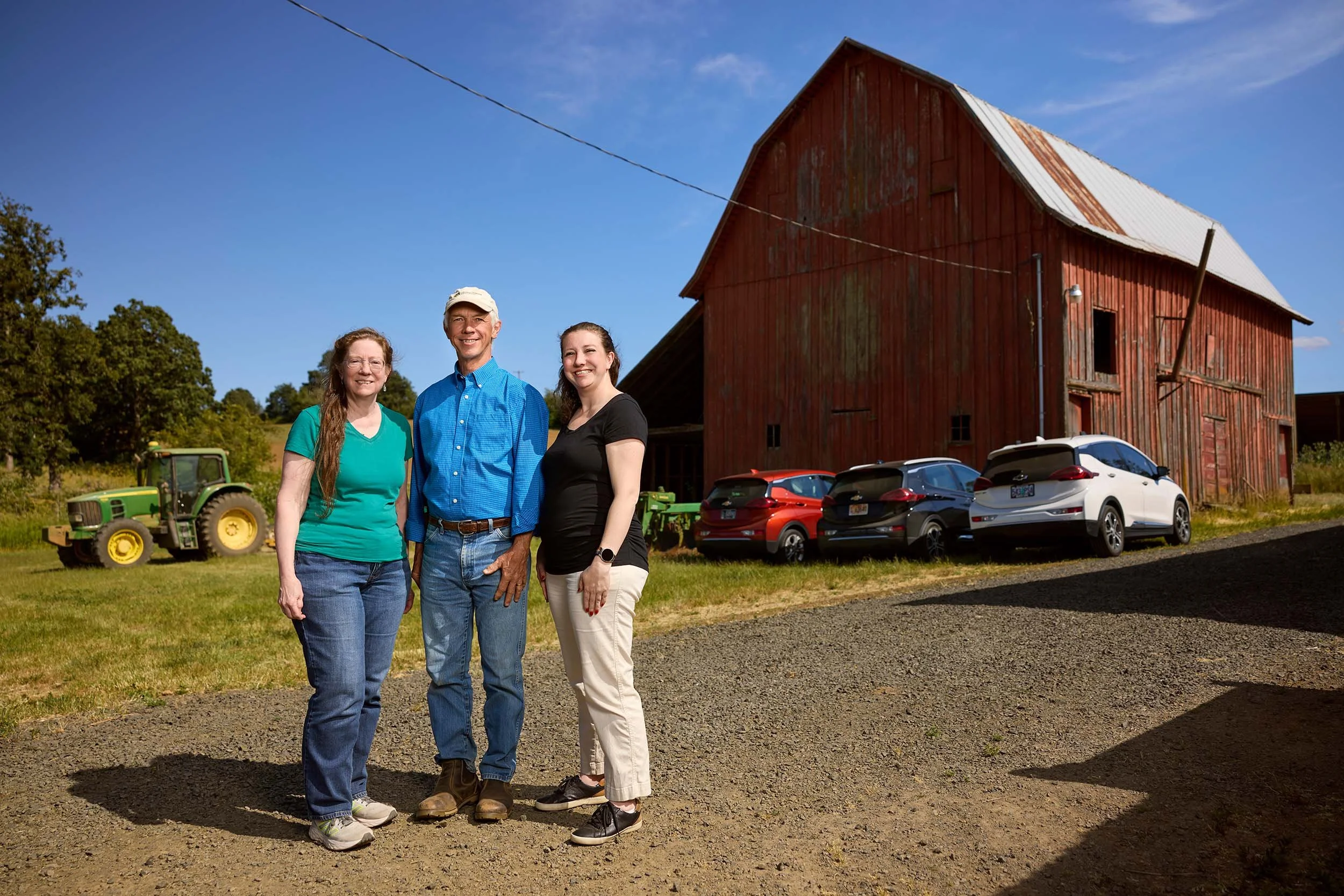Pryor Garnett: Organic Farmer & EV Trailblazer
Pryor Garnett is a former patent attorney and current organic farmer whose life has bridged very different worlds. After over 30 years doing patent law, for the past decade he swapped his suits for boots and now grows certified organic grain in rural Western Oregon — and pioneers rural electric mobility.
From Engineer to Lawyer to Land Steward
Pryor grew up in West Seattle, studied and worked in engineering and computer programming, got a law degree from the University of Washington, and had a long career in patent law. In his mid-50s he bought what is now Garnetts Red Prairie Farm in Sheridan, Oregon, and not long after retiring from IBM he took over doing the farming himself. Over the past ten years he has grown and harvested certified organic wheat, barley, rye, triticale, buckwheat, peas, and radishes. His family’s first farmer in five generations, Pryor has embraced rural life and, through the national Organic Farmers Association, is working to strengthen organic agriculture in the United States.
A Family Affair
Pryor purchased his first electric vehicle in 2020 after several years of commuting between the farm and his family’s home in the Portland metro. “I’m usually the early adopter of new technologies in the family, and I knew we needed to get the hang of this whole ‘EV thing’,” says Pryor. He also wanted to save money and to shrink his carbon footprint, so he bought a 2019 Chevy Bolt and installed a Level 2 charger at the farm. Several trouble-free years later, he let his daughter, Marjorie, commute in it for a few months when she couldn’t use her own car. She enjoyed the convenience and low cost of charging at home and soon she bought her own Bolt. (Read her story here.) Then his other daughter Alison got a Kia Niro EV, his wife got a 2020 Chevy Bolt, and his brother got a Hyundai Kona EV.
The Garnetts are enjoying three main benefits from driving EVs. First is the dramatically lower driving costs. A Bolt goes an average of 3.7 miles on a kWh of power, and at PGE’s off-peak, residential rate of $0.12/kWh, that translates to only 3.2 cents per mile for fuel — a fraction of the fuel cost of an economical gas car. Second is the convenience of charging overnight, having a full “tank” every morning, and only having to stop and “fill up” (aka fast charge) on longer road trips. Third is EVs’ almost total lack of maintenance: no oil changes, spark plugs, timing belts, or transmission issues; just wiper fluid refills, plus new tires and coolant changes every few years. “I didn’t realize how much time and attention I’d been spending on servicing and repairing my gas car until I wasn’t having to do any of that,” says Pryor.
Pryor still relies on his diesel pickup truck for heavier farm work that isn’t a fit for his Bolt. His 3/4 ton, 8-cylinder diesel Silverado handles all the towing and other hauling, but it sees far fewer miles, and burns a lot less fuel, since his EV entered the scene.
Pryor Garnett clearly started a trend, and now most of his immediate and extended family members drive EVs. In fact, he and his daughter Marjorie have become bona fide EV evangelists, participating regularly in PGE’s Transportation Electrification Work Group, which answers questions for EV-curious people from all walks of life and helps them overcome the barriers to adoption.





